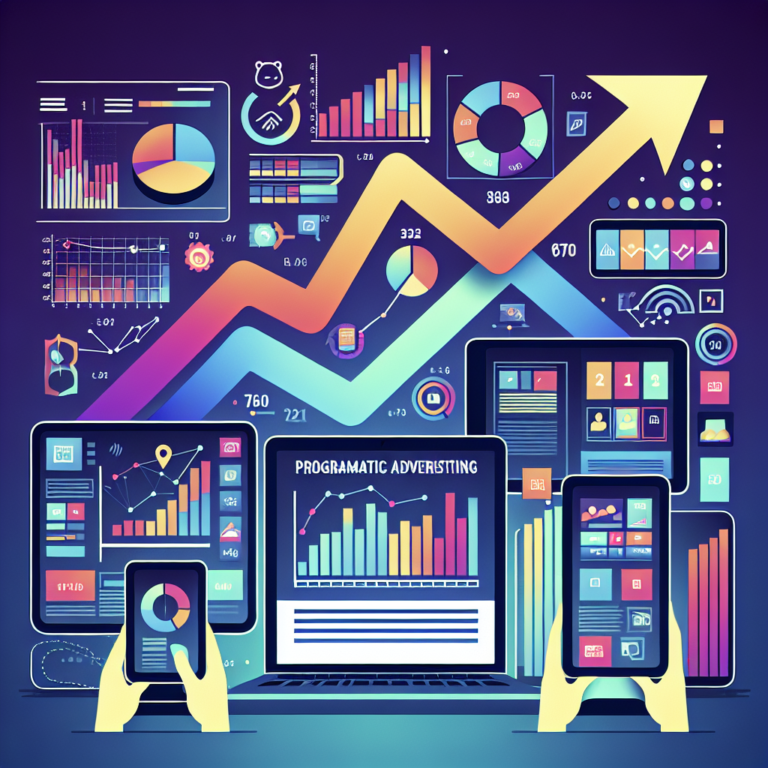Introduction
Programmatic advertising has transformed the way brands reach their target audience and drive results. By leveraging data and automation, brands can deliver personalized and relevant messages to consumers at scale. In this blog, we will explore the rise of programmatic advertising and how brands are using it to drive success in their marketing campaigns.
What is Programmatic Advertising?
Programmatic advertising is the use of technology to automate the buying and selling of digital advertising. It allows brands to target specific audiences with personalized messages in real-time, based on data and algorithms. This means that ads are purchased and displayed to the right people at the right time, increasing the likelihood of engagement and conversions.
How Does Programmatic Advertising Work?
Programmatic advertising works through a complex ecosystem of ad exchanges, demand-side platforms (DSPs), and supply-side platforms (SSPs). Brands use DSPs to create campaigns and set targeting parameters, while publishers use SSPs to sell ad space on their websites. When a user visits a website, the ad exchange matches the user with relevant ads based on their browsing behavior and demographic information.
The Benefits of Programmatic Advertising
There are several benefits to using programmatic advertising for brands:
- Increased efficiency: Programmatic advertising streamlines the ad buying process, saving time and resources for brands.
- Targeted advertising: Brands can reach specific audiences with personalized messages, increasing the likelihood of engagement and conversions.
- Real-time optimization: Programmatic advertising allows brands to adjust their campaigns in real-time based on performance data, ensuring maximum ROI.
- Advanced targeting capabilities: Brands can use data to target consumers based on behavior, demographics, and interests, leading to more effective campaigns.
Case Studies: Brands Leveraging Programmatic Advertising
Many brands have successfully leveraged programmatic advertising to drive results in their marketing campaigns. Here are a few examples:
1. Coca-Cola: Coca-Cola used programmatic advertising to reach younger audiences with personalized messages, resulting in a 18% increase in brand awareness.
2. Nike: Nike used programmatic advertising to target sports enthusiasts with relevant ads, leading to a 20% increase in online sales.
3. Amazon: Amazon used programmatic advertising to retarget customers who had abandoned their shopping carts, resulting in a 15% increase in conversions.
FAQs
Q: Is programmatic advertising only for big brands?
A: No, programmatic advertising is not just for big brands. Small and medium-sized businesses can also benefit from programmatic advertising by reaching their target audience with personalized messages.
Q: How much does programmatic advertising cost?
A: The cost of programmatic advertising varies depending on factors such as targeting parameters, ad formats, and competition. Brands can set their budgets and adjust them based on performance data.
Q: How can brands ensure their programmatic advertising campaigns are successful?
A: Brands can ensure their programmatic advertising campaigns are successful by setting clear objectives, defining target audiences, and continuously optimizing their campaigns based on performance data.
Q: Is programmatic advertising effective for all industries?
A: Programmatic advertising can be effective for most industries, as long as brands have a clear understanding of their target audience and set relevant targeting parameters. Different industries may require different strategies and messaging to drive results.
Q: What are the challenges of using programmatic advertising?
A: Some challenges of using programmatic advertising include ad fraud, brand safety concerns, and data privacy regulations. Brands can mitigate these challenges by working with trusted partners and monitoring their campaigns closely.
Conclusion
Programmatic advertising has revolutionized the way brands reach their target audience and drive results in their marketing campaigns. By leveraging data and automation, brands can deliver personalized messages to consumers at scale, leading to increased engagement and conversions. As technology continues to evolve, programmatic advertising will play an increasingly important role in the marketing strategies of brands across industries.
